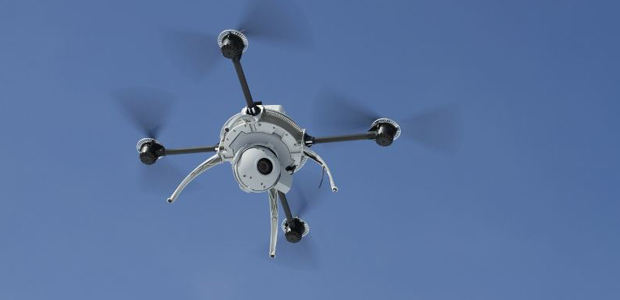德國鐵路公司計劃于近期在各鐵路站點區域試飛配備了紅外相機的無人機,用以監控各區內公物在夜間被涂鴉或損毀的情況,并收集相關證據以便對破壞者進行處罰。不過,德國相當嚴苛的反監控法或對此類無人機的使用產生影響。德國鐵路發言人表示,無人機上只會在夜間在車廂上涂鴉現象比較集中的大型站點上空飛行,紅外相機也只關注鐵路公司旗下的產業,鐵路站點以外的人和物不在拍攝范圍內。據悉,德國鐵路公司每年用于清理各類涂鴉的花費高達760萬歐元(約合100萬美元),而每架無人機的成本約為6萬歐元,可在距離地面150米的上空近乎無聲飛行。

 |
|
Germany's national railway company, Deutsche Bahn, plans to test small drones to try to reduce the amount of graffiti being sprayed on its property. |
Germany's national railway company, Deutsche Bahn, plans to test small drones to try to reduce the amount of graffiti being sprayed on its property.
The idea is to use airborne infra-red cameras to collect evidence, which could then be used to prosecute vandals who deface property at night.
A company spokesman said drones would be tested at rail depots soon.
But it is not yet clear how Germany's strict anti-surveillance laws might affect their use.
Graffiti is reported to cost Deutsche Bahn about 7.6m euros ($10m) a year.
German media report that each drone will cost about 60,000 euros and fly almost silently, up to 150m (495ft) above ground.
Using cameras to film people surreptitiously is a sensitive issue in Germany, where privacy is very highly valued.
When Google sent its cameras through the country three years ago to build up its "Street View" of 20 cities, many people objected to their houses appearing online. Even Foreign Minister Guido Westerwelle said: "I will do all I can to prevent it".
Such was the opposition that Google was compelled to give people an opt-out. If householders indicated that they did not want their homes shown online, then the fronts of the buildings would be blurred. More than 200,000 householders said that they did want their homes blanked out on Street View.
A Deutsche Bahn spokesman told the BBC that its drones would be used in big depots where vandals enter at night and spray-paint carriages. The drones would have infra-red sensors sophisticated enough for people to be identified, providing key evidence for prosecutions.
But it seems the cameras would be tightly focused within Deutsche Bahn's own property - people or property outside the depots would not be filmed.
The drone issue is also sensitive in Germany because earlier this month the defense ministry halted an expensive project to develop Germany's own surveillance drone, called Euro Hawk.
The huge unmanned aircraft would be used abroad but would need to be able to fly in German airspace, if only to take off and land on their way to and from the land to be watched, our correspondent reports.
But it became clear that the air traffic authorities were not going to grant that permission. The reasoning was that Germany's military drones would be unable to avoid collisions with other, civilian aircraft.
Small drones on private land do not need permission from air traffic controllers - big drones do.
So Germany seems to be entering a legal grey area - it is not clear when the flight of a drone may become so extensive that the wider authorities need to intervene, Stephen Evans reports.
(Source: BBC News)
相關閱讀

(中國日報網英語點津 Helen )